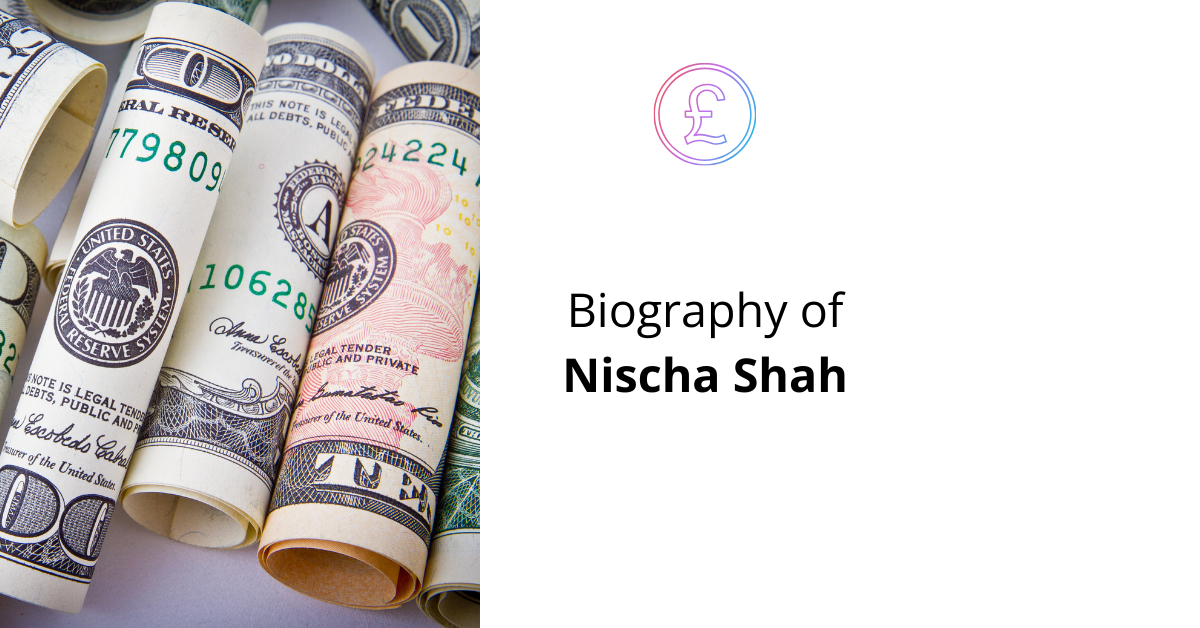Vijay Shekhar Sharma is the founder and CEO of One97 Communications and Paytm.
Introduction-
Vijay Shekhar Sharma was born on 7 June 1978 into a middle-class Brahmin family in Aligarh, Uttar Pradesh, India.
His father, Sulom Prakash Sharma is a retired school teacher and retired principal of Agrsen college, Aligarh.
Vijay’s mother, Asha Sharma is a housewife.
He has three siblings, two sisters and a younger brother.
A sharp student-
Vijay was a very sharp student in his schooling years.
He was a bookworm and a very disciplined kid.
Vijay used to grasp his subjects so well that his teachers allowed him to skip the classes and thanks to this, he completed his 10th class when he was just 12 years old.
He did his schooling from an under-resourced school in Hindi medium in the Board of High School and Intermediate Education Uttar Pradesh.
Changing schools-
Vijay did his schooling from D.A.V College school, Jwala Dwar, Aligarh.
Later, he studied intermediate from Agrasen Inter College Harduaganj.
Vijay completed his intermediate when he was just 15.
Desire to become an entrepreneur-
Since his childhood, Vijay wanted to grow up to become an entrepreneur.
His cousin, Sanjay Gaur was involved in the hardware and lock business and in his childhood, wanted to join the business after completing his education and expand it worldwide.
Struggling to join college-
As Vijay finished his schooling at a young age, he wasn’t eligible to join an engineering college as he was too young.
Luckily, during that time, there weren’t any age restrictions to enrol into the Aligarh Muslim University (AMU).
So, Vijay filled the application form and wrote the written entrance exam in which he passed.
But unfortunately, he couldn’t clear the interview and as a consequence, he couldn’t get into the Aligarh Muslim University.
Hindi to English-
As Vijay couldn’t join AMU, he started preparing to enrol into other engineering colleges.
He did his schooling in Hindi medium schools and as all the engineering preparation books were in English, he struggled to understand them.
Vijay studied the books with the help of translation.
He was an introvert and struggled with an inferiority complex.
Joining DTU-
After preparing for a year, Vijay wrote the admission test of Delhi College of Engineering, now known as Delhi Technological University (DTU) and secured a rank of 47.
In 1994, he joined DTU to study a Bachelor of Engineering (BE) in Electronics & Communications.
First bencher becomes last bencher-
Vijay was a topper all through his school and was a first bencher.
But in DTU, he couldn’t understand the classes which were being taught in English.
And thanks to this, Vijay was humiliated by his professors and he became a last bencher.
Also, he failed in a few subjects in his first year of engineering and this was even more devastating to him.
Escaping to the computer centre-
As Vijay wasn’t able to understand the classes, he stopped attending the engineering classes and started going to the computer centre.
Here, he learnt programming and this later helped him to start a content management system company.
Inspired towards Silicon Valley-
In 1995, someone suggested Vijay learn English by reading English magazines.
So, he visited the Sunday market in Daryaganj, Delhi and purchased second-hand business magazines like Fortune and Forbes.
Thanks to these magazines, he learnt about Silicon Valley, Stanford University and Bill Gates.
Vijay was amazed by the big internet companies like Yahoo, Netscape, etc.
Entrepreneurial spirit-
Previously, Vijay was worried that he might not get a job as he failed in subjects and also, as he was not attending the classes.
While reading the business magazines, he learnt about college dropouts building successful companies and so, he stopped worrying about whether he would get a job or not, as he started thinking about starting a company of his own.
Starting a company-

In his third year of engineering, Vijay along with his friends started a software company by the name, XS.
Initially, they built a search engine and wrote a search algorithm.
Later, they developed a content management system (CMS) like WordPress for media houses.
Vijay used to get projects to his company in an interesting way.
He used to attend the job interviews on the pretext of trying for the jobs and during the interviews, he used to offer his company’s services to the interviewers.
In 1999, Vijay sold this company to a US citizen.
Stanford dream-
Vijay graduated from BE in 1998 and his dream was to further study from Stanford University.
But as he wasn’t in a position to afford the expenses, he dropped this dream.
Then, Vijay decided to start another company in India.
Many jobs-
As his parents weren’t business persons, they didn’t support Vijay doing business.
So, he convinced his mother that he would work in a job for a couple of years and then start his business.
In 1998, Vijay worked in the area of Business Development for the RiverRun Software Group.
Then, in 1999, he joined India Today Group Online to work as a Tech head.
Later, from April 2000 to May 2001, Vijay worked as a CTO for Startec Global Systems, Delhi, India.
Starting One97 Communications-
In 2000, his job in Startec was to make software for Airtel.
Here, Vijay developed a phone directory for Airtel and named it as One97.
Thanks to this directory, he along with a couple of co-founders in December 2000 started One97 Communications Limited in Noida.
This company is involved in providing value-added service (VAS) for telecommunications companies and also provides content and marketing for feature phones.
Struggles-
Initially, Vijay invested the money that he earned by selling his previous company XS into One97.
Later, he took a loan of ₹8 lakh for doing business.
As Vijay wasn’t in a position to repay this loan, he struggled a lot.
And as the times were tough, the other co-founders left the company.
His financial condition was so dire that he had to take loans even for his meals and living.
During that time as Vijay wasn’t in a position to afford bus fares so, he used to walk long distances in cold winter.
And he did several odd jobs for survival like setting up internet connections, email addresses and local networks for people and giving lectures.
At that time, even a cup of tea was a luxury for him.
Fortunately, Vijay got a chance to work on a large project of a company and thanks to this, he paid off his loan.
Idea for Paytm-
Vijay didn’t like carrying accessories with him like wallet, etc. and once he lost his wallet in a lounge and travelled to the United States without a wallet and after reaching there, he had to call his friend to arrange him an Uber ride.
During that time, he realised the importance of an electronic payment system.
If he would have had an electronic payment system, he could have made the payments even without his wallet.
Starting Paytm-
In August 2010, Vijay founded Paytm in New Delhi, India.
Paytm is the acronym for pay through mobile.
The eureka moment-
Once Vijay visited a 7-Eleven super store in China and there he observed that the customers were quickly checking out after paying with their smartphones.
That store was using the Alipay payment gateway.
Vijay also tried it and was very impressed by it as he was able to pay within a couple of milliseconds and also received the notification of successful payment and an invoice in the app.
Adapting for India-
Even though Vijay was impressed by the payment system, he quickly realised that it would be difficult to implement in India as that system requires the retailers to invest in scanners, computers and internet connections.
And during that time, the majority of Indian retailers weren’t in the position to afford them.
So, here Vijay took the U-turn and devised a plan in which the customers can scan the QR codes of retailers by using the internet of their smartphones and the retailers would just need to simply display static QR codes.
At that time, this was a very unique idea.
Later, Jack Ma through his Ant Group, Masayoshi Son of SoftBank, Warren Buffett, etc. invested in Paytm.
Steve Jobs, Masayoshi Son and Jack Ma are Vijay’s inspirational figures.
Recognition-
In 2016, Vijay received Yash Bharati Award from the Government of Uttar Pradesh in the mobile banking sector.
In 2017, Forbes ranked him as India’s youngest billionaire (he was 38 at that time) and during that year, he had a net worth of $1.3 billion.
His family-
In 2015, Vijay married Mridula Sharma and this couple is blessed with a son, Vivaan Sharma.
Jio and demonetisation-
Paytm grew by leaps and bounds thanks to Jio and demonetisation.
Many small businesses and people all across India started using the services of Paytm after demonetisation.
Paytm became profitable in 2020.
The initial public offering (IPO) of Paytm was launched on 1 November 2021.
Now, Paytm offers many services like payments bank, mall, insurance, etc.
Now, Vijay is one of the richest Indians.
So, how are you inspired by the success story of Vijay Shekhar Sharma?
Share with me in the comment section below.
Vijay Shekhar Sharma image credit- Richter Frank-Jurgen/Wikimedia Commons



0 Comments